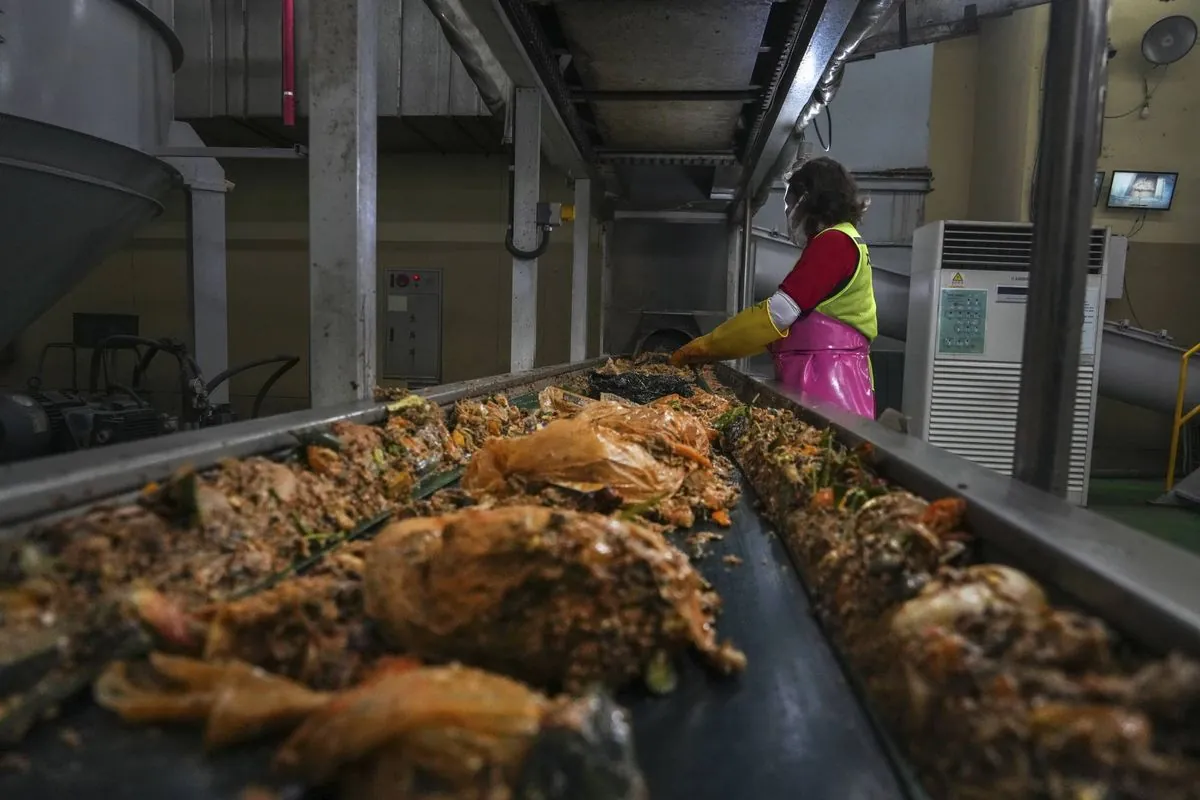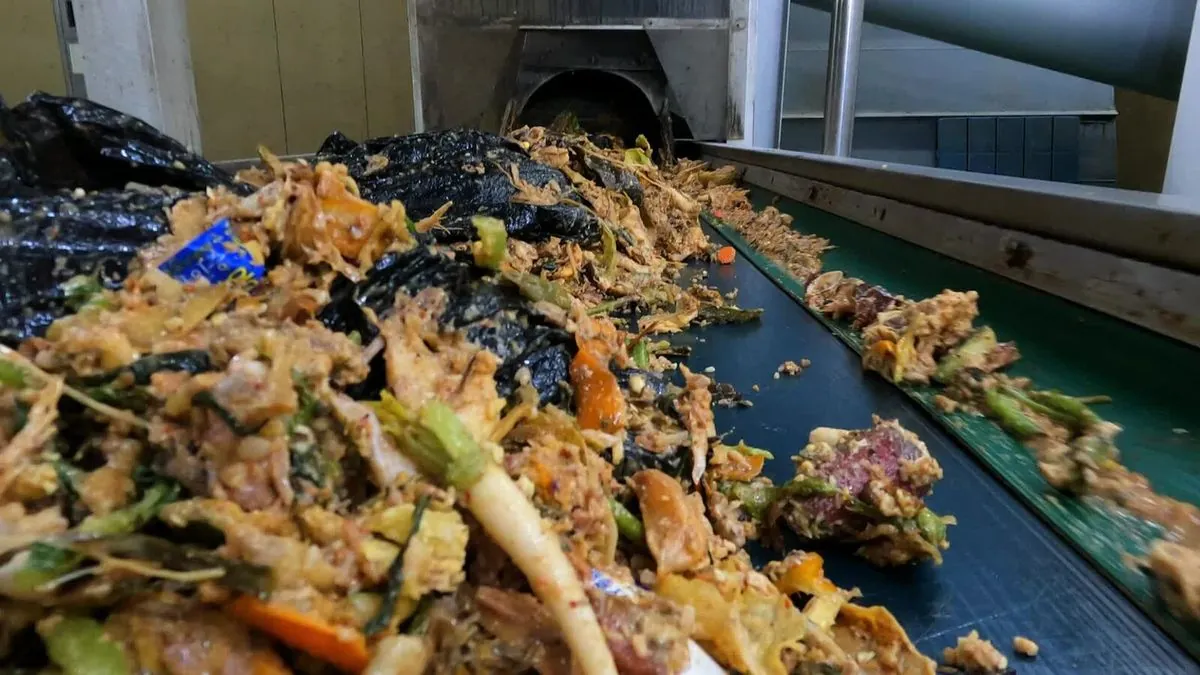South Korea's Food Waste Revolution: A Model for Global Sustainability
South Korea recycles 98% of its food waste, transforming it into fertilizer, animal feed, and biogas. This nationwide system, implemented over two decades, serves as a potential model for global food waste management.

South Korea has emerged as a global leader in food waste management, achieving a remarkable 98% recycling rate. This transformation, which began approximately 20 years ago, has revolutionized the country's approach to sustainability and resource management.
At the heart of this system are facilities like the Daejeon Bioenergy Center, one of about 300 such plants across the nation. This center, spanning an area equivalent to two football fields, processes over 400 tons of food waste daily, converting it into green energy capable of powering 20,000 households.
Jeong Goo-hwang, the plant's chief executive, emphasizes the facility's crucial role: "This place takes care of half of the entire daily food waste that the city of Daejeon produces." Daejeon, South Korea's fifth-largest city with a population of about 1.5 million, exemplifies the country's commitment to efficient waste management.

The success of South Korea's food waste recycling program is rooted in stringent policies and public participation. The government banned food scraps from landfills and mandated that all residents separate their food waste from other trash. This initiative is supported by a "pay-as-you-throw" system, where citizens are charged based on the amount of food waste they produce.
"I get a small sense of fulfillment knowing I'm contributing to lowering carbon emissions."
The impact of these measures is significant when compared to global statistics. In the United States, as of 2019, 60% of food waste still ends up in landfills, with only 5% being composted and 15% converted to energy. Globally, the United Nations Food and Agriculture Organization estimates that up to 31% of all food is wasted, contributing to 6-8% of global emissions.
South Korea's system has adapted to local customs, such as the tradition of banchan (side dishes) in Korean cuisine, which often results in leftovers. Restaurant owners like Yun-jung Ryew have implemented creative solutions to minimize waste, including reminding customers of the environmental impact of food waste and imposing small fees for excessive leftovers.
Despite its successes, the system faces ongoing challenges. The amount of food waste generated annually in South Korea, approximately 5.5 million tons, has remained relatively constant over the past five years. Additionally, there are difficulties in sorting food waste properly and concerns about the quality of recycled products for agricultural use.
Park Jeong-eum, recycling team leader at the Korea Federation for Environmental Movements, notes that the country is increasingly relying on biogas centers like the one in Daejeon to address these challenges. These facilities not only reduce pollution and emissions but also generate electricity and heating.
While South Korea's system serves as a potential model for other nations, experts like Jonathan Krones, an associate professor at Brandeis University, caution that it may not be easily adaptable to countries with different geographical and demographic characteristics.
Ultimately, the most effective solution to the food waste problem lies in reduction at the source. As the world grapples with environmental challenges, South Korea's innovative approach offers valuable insights into sustainable waste management practices.


































